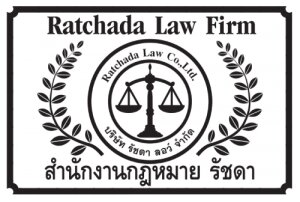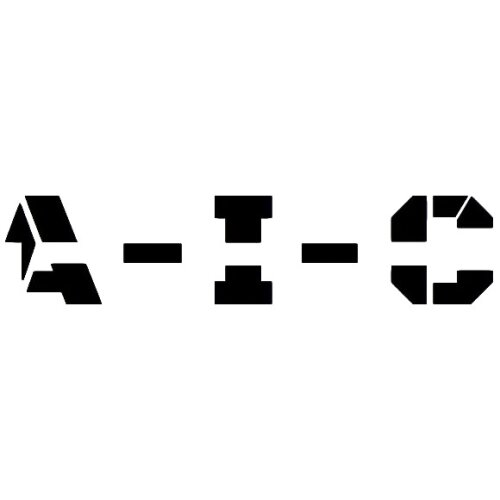Best Bankruptcy & Debt Lawyers in Bang Kapi
Share your needs with us, get contacted by law firms.
Free. Takes 2 min.
List of the best lawyers in Bang Kapi, Thailand
Thailand Bankruptcy & Debt Legal Questions answered by Lawyers
Browse our 1 legal question about Bankruptcy & Debt in Thailand and read the lawyer answers, or ask your own questions for free.
- Money fraud and deceive
- About a year now I am providing financial support to a person I know, because she was facing financial difficulties with her family. The deal was that she was going to give the money back with no interest, as long as she managed to sell some land that she owns,... Read more →
-
Lawyer answer by Ascendance International Consulting (A-I-C)
Thank you for reaching out. Situations involving informal loans to acquaintances are unfortunately common, but there are effective legal steps available in Thailand to pursue recovery—especially where the amount involved is substantial.Based on your description, your ability to recover the...
Read full answer
Thailand Bankruptcy & Debt Legal Articles
Browse our 1 legal article about Bankruptcy & Debt in Thailand written by expert lawyers.
- How to File for Bankruptcy in Thailand
- The economic landscape of Thailand has seen its share of ups and downs over the years, with the 1997 Asian financial crisis leaving an indelible mark on the country's financial system. This crisis forced Thailand to reevaluate its financial institutions and legal frameworks. As a response to the corporate defaults... Read more →
About Bankruptcy & Debt Law in Bang Kapi, Thailand
Bankruptcy & Debt law in Bang Kapi, Thailand falls under the broader umbrella of Thai commercial law. The purpose of these laws is to provide a legal framework for individuals and businesses that are unable to meet their debt obligations. Laws surrounding bankruptcy and debt aim to ensure that creditors receive fair compensation while also providing the debtor with an opportunity to reorganize or discharge their debts in an orderly manner. In Bangkok, and specifically in Bang Kapi, legal mechanisms exist to help manage and resolve financial distress.
Why You May Need a Lawyer
Seeking the assistance of a lawyer in matters of Bankruptcy & Debt can be crucial for several reasons:
- Understanding the Complex Legal Framework: Bankruptcy & Debt laws can be complicated. A lawyer can help you comprehend your rights and obligations.
- Filing for Bankruptcy: If you decide that bankruptcy is the best option, a lawyer can guide you through the intricate filing process and represent you in court.
- Debt Negotiation: Lawyers can assist in negotiating non-bankruptcy debt resolutions with creditors, potentially allowing you to restructure or reduce your debt.
- Representation in Court: Legal counsel can represent you in any litigation or court proceedings that arise from your financial situation.
- Protecting Your Assets: A lawyer can provide strategies to help protect your personal and business assets from creditors.
Local Laws Overview
Understanding the principal aspects of Bankruptcy & Debt laws in Bang Kapi is essential:
- Bankruptcy Act: Governed by the Bankruptcy Act B.E. 2483 (1940), this law establishes the legal process for declaring bankruptcy and the subsequent proceedings.
- Debtor Rehabilitation: An important aspect where businesses facing financial distress undergo a court-approved plan to repay their debts over time while continuing operations.
- Creditor Rights: Creditors have the right to file claims and participate in legal proceedings to ensure fair distribution of the debtor's assets.
- Automatic Stay: A provision that halts all collections activities by creditors once a bankruptcy proceeding has commenced.
Frequently Asked Questions
What is the difference between Chapter 7 and Chapter 13 bankruptcy in Thailand?
Thailand does not categorize bankruptcy into different chapters like the U.S. Instead, it follows a single bankruptcy process. However, there is a provision for rehabilitation for businesses, which is somewhat similar to Chapter 13 in the U.S., allowing restructuring of debts while continuing operations.
How long does the bankruptcy process take in Thailand?
The duration can vary depending on the complexity of the case. Bankruptcy proceedings can take anywhere from several months to a few years. Rehabilitation processes can also be lengthy as they involve detailed debt restructuring plans.
What assets can I keep in a bankruptcy in Thailand?
The law allows debtors to keep certain essential personal items necessary for living and working, but this can vary. Consulting with a local attorney will help you understand what specific assets are protected.
Can I file for bankruptcy if I am not a Thai citizen?
Yes, non-citizens can file for bankruptcy in Thailand provided they have debts or business operations in the country. Legal advice is highly recommended due to jurisdictional complexities.
Will bankruptcy ruin my credit forever?
Bankruptcy will significantly impact your credit, but it is not permanent. You can rebuild your credit over time through responsible financial behavior.
Can creditors still contact me after I file for bankruptcy?
Once a bankruptcy is filed, an automatic stay is enacted which prevents creditors from continuing collection efforts, including contacting you for debt repayment.
Is rehabilitation available for individuals or just businesses?
Rehabilitation is generally designed for businesses, but individual debtors with complex financial situations can sometimes qualify. Legal consultation is essential.
What are the consequences of failing to comply with a bankruptcy order?
Non-compliance or fraudulent behavior during bankruptcy proceedings can result in severe penalties, including fines and potential imprisonment.
Can I convert my bankruptcy case from liquidation to rehabilitation?
Under certain conditions, it may be possible to convert from liquidation to rehabilitation. This typically requires court approval and a detailed repayment plan.
Do I need a lawyer to file for bankruptcy in Thailand?
While it is not legally required to have a lawyer, the complexities and legal nuances involved in bankruptcy proceedings make it highly advisable to seek legal assistance.
Additional Resources
For those seeking further information or assistance, the following resources can be helpful:
- Legal Aid Organizations: Offering free or affordable legal services.
- Department of Business Development (DBD): Provides resources and information regarding business laws including bankruptcy.
- Thai Bar Association: Can help you find licensed bankruptcy lawyers in Bang Kapi.
Next Steps
If you find yourself in financial distress and require legal assistance in Bankruptcy & Debt matters in Bang Kapi, consider the following steps:
- Consult a Lawyer: Seek out a qualified lawyer specializing in Bankruptcy & Debt to discuss your situation.
- Gather Documentation: Compile all relevant financial documents, including debt agreements, bank statements, and any correspondence with creditors.
- Understand Your Options: Work with your lawyer to explore all available legal solutions, from debt negotiation to filing for bankruptcy.
- Follow Legal Advice: Adhere strictly to the recommendations and instructions provided by your legal counsel to ensure compliance and the best possible outcome.
Taking these steps can help you navigate the complexities of Bankruptcy & Debt law more effectively.
Lawzana helps you find the best lawyers and law firms in Bang Kapi through a curated and pre-screened list of qualified legal professionals. Our platform offers rankings and detailed profiles of attorneys and law firms, allowing you to compare based on practice areas, including Bankruptcy & Debt, experience, and client feedback.
Each profile includes a description of the firm's areas of practice, client reviews, team members and partners, year of establishment, spoken languages, office locations, contact information, social media presence, and any published articles or resources. Most firms on our platform speak English and are experienced in both local and international legal matters.
Get a quote from top-rated law firms in Bang Kapi, Thailand — quickly, securely, and without unnecessary hassle.
Disclaimer:
The information provided on this page is for general informational purposes only and does not constitute legal advice. While we strive to ensure the accuracy and relevance of the content, legal information may change over time, and interpretations of the law can vary. You should always consult with a qualified legal professional for advice specific to your situation.
We disclaim all liability for actions taken or not taken based on the content of this page. If you believe any information is incorrect or outdated, please contact us, and we will review and update it where appropriate.
Browse bankruptcy & debt law firms by service in Bang Kapi, Thailand
Bang Kapi, Thailand Attorneys in related practice areas.










